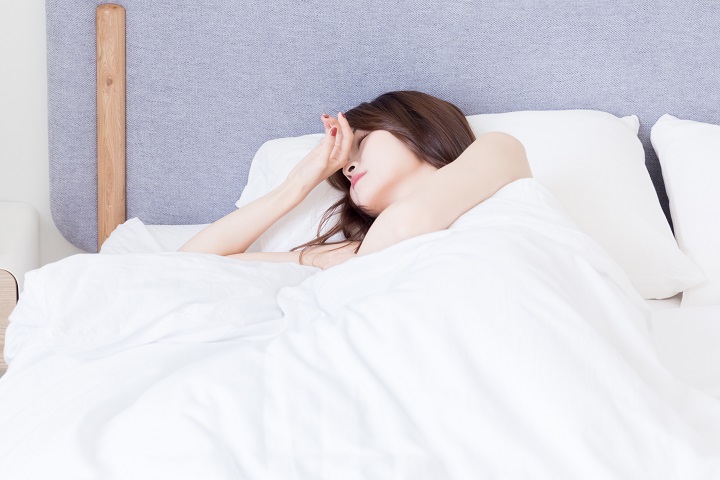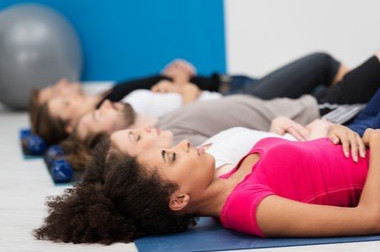In order to relieve people's mental pressure, increase their psychological immunity, and boost their confidence in prevailing over the epidemic, Chinese Association for Mental Health organized experts to compile Guidelines for Psychological Self-help and Counseling for Public 2019 Novel Coronavirus Pneumonia, to rebuild your mental health system for epidemic prevention.
Next, we will introduce the way of seeking better mental status and attitudes for the general public under the epidemic.
I. Have a correct knowledge of your mental status

First of all, we should recognize the great pressure from the outbreak of infectious diseases, and some may even bear psychological trauma, so it is quite normal to develop certain negative attitudes. Even if you find yourself in a low mood not usually occurred, you should neither treat it as a big danger, nor develop too much psychological burden. These changes are absolutely normal. Embracing these emotions will help us better live and cope with the epidemic.
However, it does not mean that we can leave any possible negative attitudes behind. Instead, we should well observe our mental status. We can watch ourselves in case of immersing into such negative emotions, review our views and beliefs about the epidemic for irrationality and check our living habits and behaviors for unnecessary and excessive fluctuations. In short, we should timely adjust our status towards the favorable attitudes against the epidemic.
II. Read epidemic information with appropriate attitudes
At this critical moment, we should well know the epidemic and read news about the 2019-nCov from TV and other formal channels in terms of nature of virus and epidemic, instead of from other rumors without validation. We should trust the information made public by the government and have faith in the epidemic prevention of the government. We should also carefully understand the relevant scientific reports and understand the efficacy of scientific research in the treatment of diseases. Moreover, with the increasing reports, we should pay more attentions to the epidemic, but do not get panic. Facing the panic, we should take careful, scientific and moderate personal protection. Good protection can bulldoze all unnecessary worries.
III. Actively communicate with the outside
Currently, people may feel lonely when they are 'forced' to stay indoors. On one hand, we can communicate more with our family and friends by telephone and the Internet, encourage and interact with each other to strengthen mutual mental support; on the other hand, we can also communicate with people in similar situations, especially suspected and diagnosed patients should find new bonds with other isolated cases and build a alliance to fight against the epidemic while under medical observation.
IV. Keep a stable and healthy lifestyle
Although in a limited space, we should still take a positive view of life, and keep the original daily routine as far as possible, for example, get up, study and work, and eat and rest on time, making ourselves get on a normal track. Leading a regular and well-controlled life is the best antidote to alleviating anxiety and panic. On this basis, we should also establish good living and health habits, take a good diet, and have sufficient sleep. Do not try to ease tension through the use of tobacco and alcohol.
V. Other ways
(I) Positive association
Taking the initiative to meditation and associating some positive and relaxing situations is conducive to developing our mindset, and even has been proved to improve the patient’s immunity. Spending 10-15 minutes a day on 1-2 positive associations can play a better role.
We can recall the happy times in our lives, imagine the tranquil and beautiful scenery of the world, and associate these positive situations with ourselves, to realize that the future is still full of hope. You can imagine forests, streams and other vibrant scenes, which seem to gradually refresh your body and mind, dispel the possible shadow in the bottom of your heart, and let the sun shine on the earth.
(II) Relaxation training
Relaxation training is actually a gradual process of tensing and relaxing the muscles of the whole body. Relaxation is carried out in turn from the hands, upper limbs, head, lower limbs, feet to other parts and then to the whole body, enabling people to learn how to hold the feeling of relaxation.
First of all, take 1-2 deep breaths, take a deep breath, hold it for a while, and then exhale slowly. After that, stretch out your forearm, clench your fists and feel the tension on your hands; then try your best to relax your hands and experience the relaxed and warm feeling after relaxation. Repeat. Bend your arms, tighten the muscles of the arms, feel the tension of the muscles of the arms, and then relax thoroughly and experience the feeling after relaxation. Repeat.
Next, practice how to relax your feet. Tighten your toes, hold them for a while, and relax your feet thoroughly. Repeat. Then come to your calf muscles, lift up your tiptoes and tightly press your heels downward and backward to tighten calf muscles, hold for a while, and then relax calf muscles thoroughly. Repeat. Then for your thigh muscles, tightly press your heels forward and downward to tighten thigh muscles, and then relax thoroughly after holding for a while. Repeat.
Finally, relax the head muscles. Wrinkle and tighten the forehead muscles, hold for a while, about 10 seconds, and then relax thoroughly for 5 seconds. Close your eyes tightly for 10 seconds, then relax thoroughly for 5 seconds. Rapidly move your eyeballs anticlockwise, then clockwise, and finally stop and relax thoroughly for 10 seconds. Hold your teeth tightly for 10 seconds, and relax thoroughly for 5 seconds. Hold your tongue against your chin for 10 seconds and relax thoroughly. Press your head back firmly, hold for 10 seconds and then relax for 5 seconds. Tighten your chin inward with the neck, hold for 10 seconds, and then relax thoroughly. Repeat the head relaxation one more time.
(III) Vent your emotions correctly
Suppressing bad emotions will damage health, therefore, it is recommended to take correct ways to vent your emotions. First of all, expression plays an important role in relieving emotions. We can keep a diary to write recent events and our feelings. Those who are good at or like painting can also express their emotions through painting. Secondly, we can get psychological support through effective communication with friends and relatives. Finally, if the bad emotion develops severely, please seek professional help. Many formal psychological consultancy institutions have set up a hotline, by which you can get a strong help in the critical period with good safety, high secrecy and professional guidance.
(IV) Adjust your cognition
We may fall into a circle of stress and bad emotions because of the epidemic, for example, we can only come out a single, but normally bad outcome for many things. We may also infinitely exaggerate the possibility of bad outcomes and underestimate what we can do and change.
At this point, we may try to ask ourselves: Are there any other outcomes? What if there are not-so-bad or better outcomes? How would you feel? What is the evidence of denying the bad ones if the they are not 100% sure? What is the evidence of good ones? What would xxx think in this case? These self-questioning process can make our cognition more flexible and practical.
(V) Do something meaningful and worthwhile
The most effective way of fighting against the sense of out of control and anxiety is to overcome your fears and move on to something more rewarding and meaningful. When we are able to help others, care for others, and contribute ourselves, we will develop a better self-approval and self-affirmation, which may further confer us more strength and a better sense of control over the environment. During the period of self-quarantine, we can express our care to our friends in the epidemic area, use our specialty to promote popular science about the disease, or learn something valuable, read a good book, and refute rumors on Sina Weibo or Wechat. These are all valuable things.